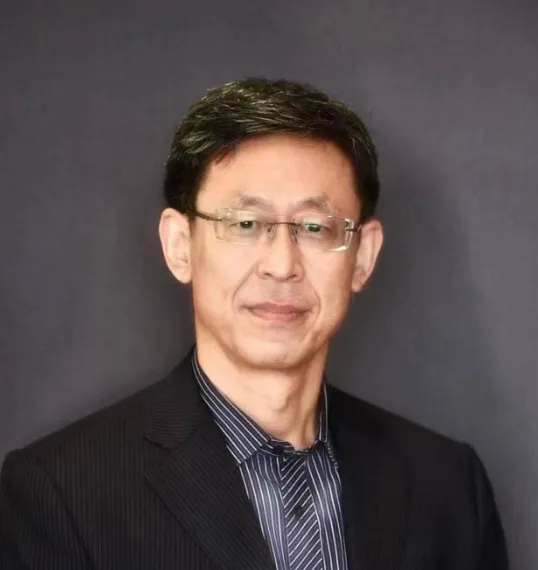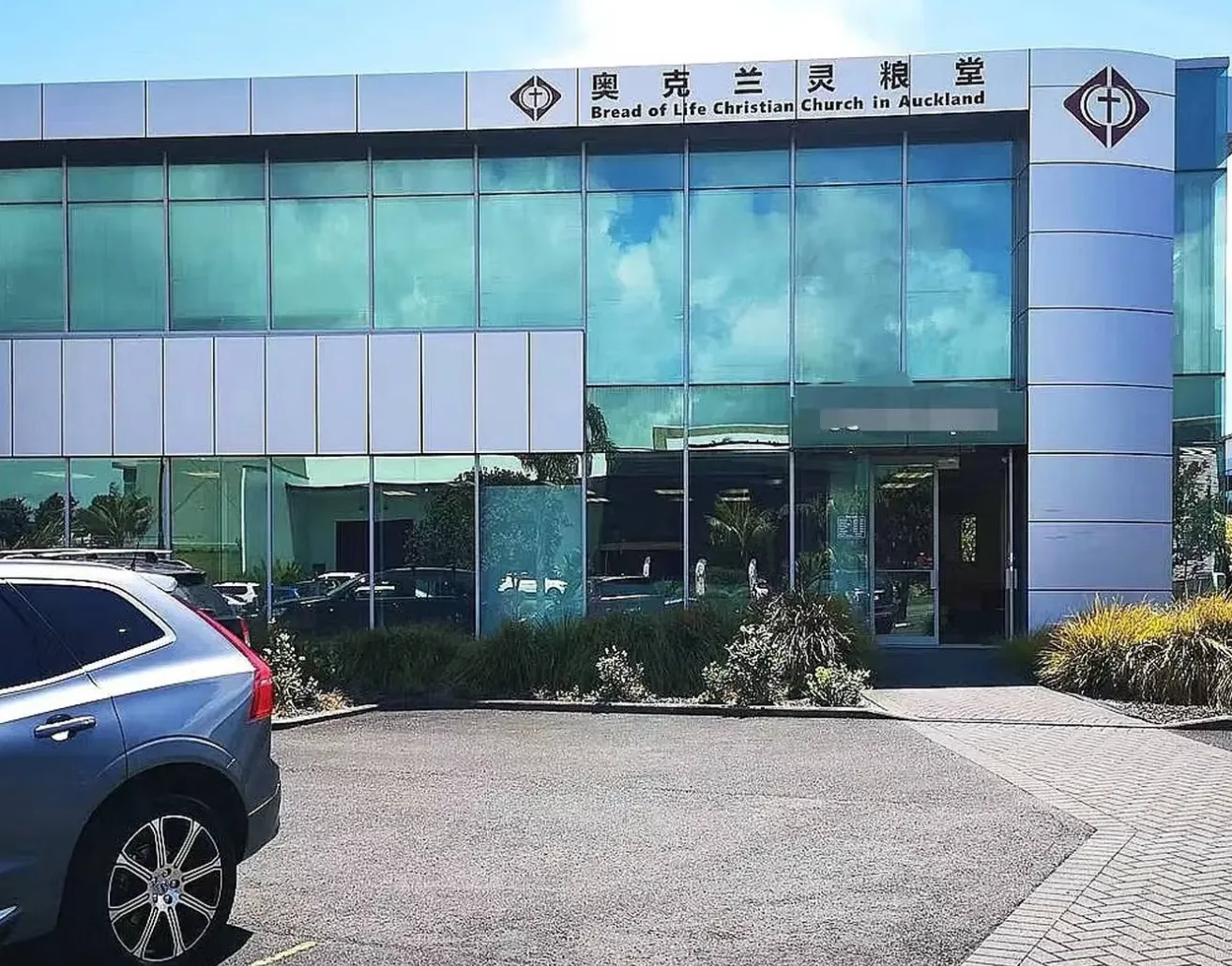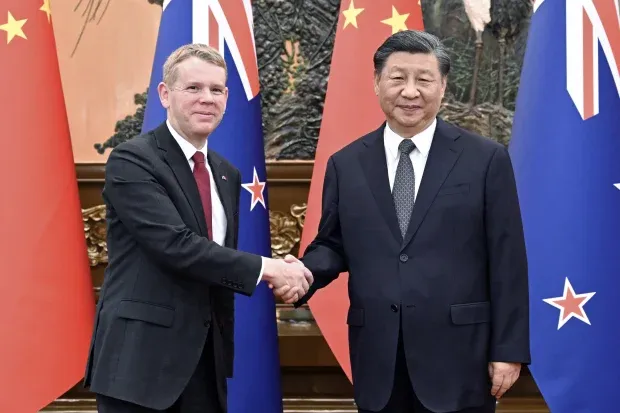What to make of Naisi Chen
Bronwyn Rideout - 4th September 2023

Back in June I wrote about the sojourn Mark and I took to Prayers @ Parliament. With election season in full swing, I thought it would be a good time to return to the topic of Naisi Chen, Labour List MP. In my original editorial, it was clear Chen made an impression of sorts on us. Mark and I were both surprised and impressed with Chen’s careful phrasing regarding the responsibility of religious leaders and representatives to repent on behalf of Christian brothers and sisters who harmed children; a positively ballsy move that appeared to be received well by the crowd.
But Chen did lay in on a bit thick at times. Chen brought up ex-MP Michael Wood’s Christian faith as evidence that he wasn’t a bad guy. For those who may not recall, Former Transport and Immigration Minister Michael Wood resigned on June 21, 2003 for failing to declare shares he had in Auckland Airport, Chorus, Spark, and National Australia Bank to the public register of MPs’ assets and other interests, nor declaring that he had such conflicts of interest. Chen is or has been a director and trustee of multiple companies and boards and also has interests (i.e. shares or bonds) in other companies like Fonterra, Genesis Energy, Intel, Tesla, Rocketlab, etc. But, unlike Woods, Chen has made her declarations.
Still, Chen’s family had been facing their own financial brouhaha for at least a couple of years, relating to the alleged withholding of funds by Xi Chen, Naisi’s father. The senior Chen, a Doctor in China who owned and operated one of the first acupuncture clinics on the North Shore according to Naisi, served as a preacher and senior pastor of Bread of Life Christian Church (BOL) on Auckland’s North Shore since 2015. The North Shore church is one of 9 such churches in NZ, and part of a global network of 600 Bread of Life churches in the world. The BOL’s headquarters is in Taipei, and is referred to as the mother church. Although the mother church ordained Chen in 2015, he did not have a written employment contract until 2019.

Herald reporter Lane Nichols reported in 2022 that Xi Chen came under fire when he allegedly stated that millions of dollars donated to the church, “…now belong to God”. For the past two decades, the congregation has raised upwards of 2 million dollars towards the building of a new church. In 2017, a commercial building in Rosedale was purchased for $3.07 million, half of which came from donations, and the rest from a $1.5 million mortgage that had just $322,000 owing as of 2022. Further donations were reported to be collected to fund the refurbishment, which had not commenced as of 2022.

However, church membership and incoming donations are said to have dwindled. The congregation was still meeting at a rented premises, and no conversion work had been completed on the Rosedale site, so the idea was floated that they would only convert part of the Rosedale property into a church and rent out the rest. Chen is reported as having disagreed, and wanted to sell the Rosedale building, arguing that anyone who opposed him was ignoring the will of God. The mother church supported Chen, and appointed him chairperson, which was in breach of the trust’s rules. Chen then allegedly declared that the building project would not go ahead, and anyone who disagreed with him was free to leave. He also was alleged to declare that donations earmarked for the building project would not be refunded, and that donors had no say over what the church did with the donations.
While the board of trustees revolted against Chen and refused to renew his contract early in 2022, the mother church still appointed Chen head Pastor of the Auckland Branch and board chairman, with only a mild admonishing that Chen be softer and listen to more people. The Auckland church as a whole, however, should repent, confess sins, and reconcile.
Three of the six trustees decided to take the matter to the High Court. The treasurer, Julia Buhagiar, also stopped paying his salary for more than a year. Chen continued to work without pay, but turned to the ERA stating he was unjustifiably dismissed.
In June 2023, the ERA ruled that Xi Chen be formally reinstated to his role on an interim basis, and questioned Buhagiar’s claims that the church couldn’t afford to pay him. The authority also dismissed claims made by the trustee that Chen was never a full employee anyways, as there was evidence of a contract and appropriate tax deductions, etc. The High Court case is still ongoing.
It will be interesting to see, as Chen leans into her Christian faith this election, if a few tables need to be flipped over in the temple.
At Prayers @ Parliament, Naisi also shared an anecdote regarding a male Muslim MP as an example of the challenges of being a Christian MP in the House of Representatives. After a recent event, the aforementioned MP told her that he found it hard holding to his religion “… in this place…” (implication being the House of Representatives), and that only a day prior he was told by someone that they don’t want to celebrate Eid because Muslim stands for anti-pride and other things they don’t believe in.
This particular portion of Chen’s speech was problematic on multiple levels. It highlights workplace bullying and discrimination, either at a parliamentary or a party level; if the latter, this is not a great look for the Labour party, to be frank. The manner in which Chen references Pride to an audience of very conservative Christians, without any meaningful details or clarification of the MP’s or the other person’s stance on LGBTQIA+, or whether there was a resolution, is highly off-putting, and throws her colleague under the bus. But maybe this lack of nuance could be put down to the fact that this didn’t happen to Naisi, therefore it wasn’t her story to tell and score points in the first place.
The accompanying request that the story not be shared outside the chambers may indicate that there was some awareness that the anecdote would not land well outside of its intended audience. Time will tell if Naisi will repeat this story for the home crowd. On September 10th, Chen will be taking part in a meet the candidates night, called Lean In: Christianity and Politics, at Windsor Park Baptist Church in Auckland, with other political party candidates also scheduled to be in attendance.
While nursing a post-prayer beer in the pub with Mark, I was curious about Chen. She isn’t a Wellington MP, and I was very interested in her story, despite not being part of the choir she usually sings to. She also has a KeyWiki entry - I mean, there are weirder yardsticks to judge if someone is okay than Trevor Loudon deeming you worthy of a profile.
But, if there is such a thing as having a favourite controversy or conspiracy, mine is that Naisi is a stooge for the CCP via the Chinese Students and Scholars Association (CSSA). I have been familiar with the CSSA since the early 2000s, when the extent of the gossip about them at the two universities I attended at that time were unsubstantiated rumours about the embassy hand-selecting key leadership roles. When I arrived in New Zealand, all mention of a CSSA as I knew it dropped off the radar, although the related Confucius Institute appeared at the University of Canterbury the year after I graduated.
In a 2017 paper by Anne Marie Brady titled Magic Weapons, Chen is quoted as stating that, “…the job as an MP will give her the platform to promote the interests of the student association she currently represents…”. At the time, Chen was the president of NZ Chinese Students and Scholars Association, an organisation that Brady called a, “…united front-related organisation for managing the overseas Chinese students and scholars…”. Brady also quoted a NZ Chinese twitter user who mused that Chen and two other Chinese MPs could form a parliamentary CCP party cell. During the 2020 election cycle, flyers declaring Naisi a CCP agent were published by New Zealand Values Alliance, which Brady has no connection to. Days later, Chen was profiled in the Spinoff, where she affirms her allegiance to NZ, with Brady’s work referenced throughout. This article in turn was subject to its own NZ Media Council complaint, by Brady against the Spinoff, although it was not upheld.
Brady’s stance regarding New Zealand’s relationship with China, and the pushback she received because of it (along with several burglaries), is not the subject of this particular article.
However, the connection made to the Chinese Students and Scholars Association should be understood in the context of international attention being paid to the organisation, at least from 2016 to present. But it can be difficult to discern what reports or articles are opinion pieces, which ones are well-informed reports free of an anti-communist agenda, and which ones are simply Sinophobic.
To be clear, I have not come across any evidence that either Naisi Chen or the NZ Chinese Students Association (NZCSA) have done anything untowards, or have attempted to undermine anyone’s rights to free speech and public protest. Academic clubs/societies for Chinese students have different names across New Zealand, and have undergone multiple changes throughout the years. The NZCSA was established in 1996, and appears to have had that name on social media since 2010. It also only displays links for Auckland, AUT, and Massey. Victoria University also has a VUW Chinese Student Association, and not a CSSA. Students at Canterbury and Lincoln gathered as the “Chinese Student and Scholar Association” in the 1980s. In the aftermath of Tiananmen Square, the Chinese Student Association at the time had a real distrust of the embassy, and reported their fears of retaliation against themselves or family back in China. A 2019 student profile refers to a CSSA at the school, but in 2021 the name was the Chinese Students and Scholars Society, before landing on its current name, the UC Chinese Student Association, around 2022/2023.

Today’s NZCSA includes the General Consulate of the PRC in Auckland as a useful link on their website, and the UCCSA also had a collaboration with the consulate with a goodie bag for the New Year. So, outwardly, there is an association between the various student groups and the consulate, but beside’s Brady’s article, there’s no other evidence of the consulate controlling or interfering with student life. The same cannot be said for other CSSA chapters and members in Australia and abroad, and I have a reasonable skepticism that the move away from the CSSA branding in NZ is not wholly coincidental.
The Chinese Students and Scholars Association (CSSA) is an organisation for Chinese students and scholars with branches in most educational institutions outside of China that has been in operation since 1970. While its official function is as a Chinese-centred student social services group, the CSSA is the subject of suspicion from journalists, western governments, and from Chinese international students themselves. It is believed that CSSAs receive input and support from their respective embassies, including financial support, and that they in return exert significant influence as to who is in the leadership of these groups. In 2011, Cambridge University’s CSSA was disbanded due to such a controversy when then-president Chang Feifan announced that they would remain for a 2nd term and not hold an election, allegedly under embassy guidance. When Feifan refused to kowtow to complaints or to university requests, the CSSA was disbanded until Feifan agreed to hold an election; Feifan came 3rd.
But 2017 is when the fervor against the CSSA really kicked off. At her commencement speech at the University of Maryland that year, Yang Shuping praised the university for teaching her about free speech. The local CSSA retaliated with a social media campaign, #Proud of China, which praised the motherland and slyly slammed Shuping for perpetuating negative stereotypes. The University of California San Diego CSSA Chapter started a particularly nasty campaign around a visit by the Dala Lama. Multiple articles and opinion pieces were also published in Australia about the CSSA and how the CCP directly and indirectly benefited from students surveilling each other and non-members, and how CSSA members policed their university for media critical of China.
Suspicions about embassy interference only increased with the 2019 pro-Hong Kong protests, with the branch at Adelaide University being deregistered for not following democratic processes. CSSA members at McMaster University in Canada had their permission to operate at the university revoked when members disrupted and filmed students attending an event about the genocide of Uighur Muslims. Similar scuffles, protests, and counter-protests were observed in New Zealand, particularly at Auckland University, but no reference to the CSSA was made by the media. At this time, the New York Times published an unintentionally funny opinion piece by Shen Lu titled The World’s Lamest Trojan Horse, where the journalist defangs the CSSA as a group they never joined, offering mostly overblown and amateurish activities, and with only certain chapters receiving monetary or other perks. But, Lu argues, the CSSA is no different than any other cultural group that offers a home away from home for students in a strange land, and those who attend pro-Beijing events or promote the motherland do so because… patriotism; not the CSSA. The Australia-China Relations Institute and the Australia Institute of International Affairs similarly contest that accusations of free-speech violations and government surveillance are overblown. A Propublica article profiling several dissident students in the US published in 2021, as well as Australian-based dissident artist Badiucao, would beg to differ.
